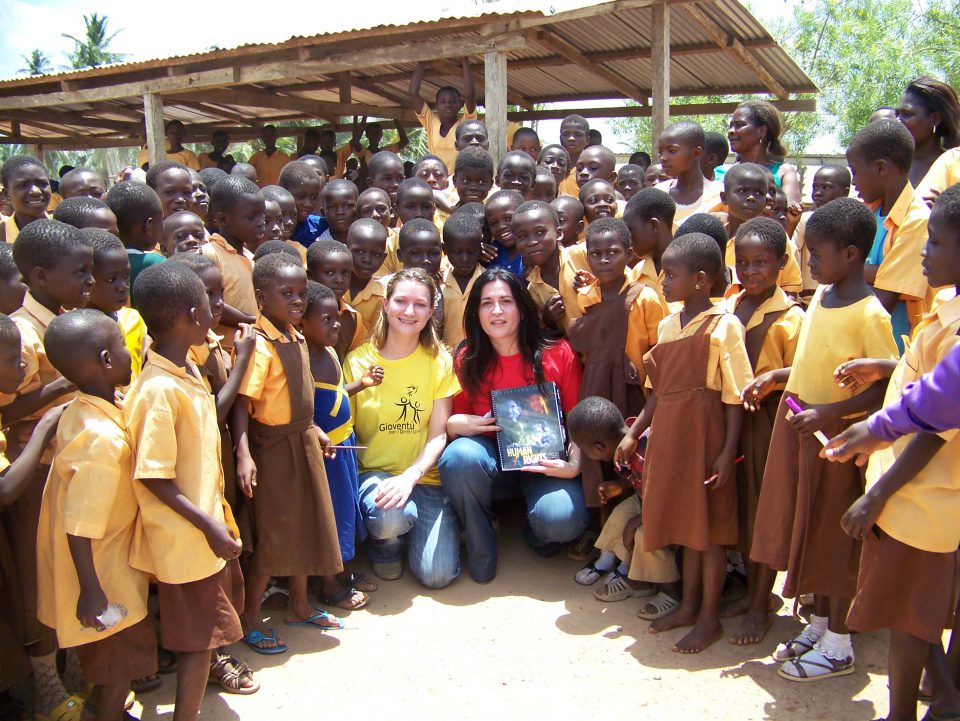Africa’s remarkable economic growth has been accompanied by the concern that the benefits of the economic growth are not shared broadly. Growth may only go so far; when inequality and lack of social mobility persist, children are effectively born disadvantaged.
There have been gains in schooling in the region. Data from the UNESCO shows that the primary adjusted net enrolment ratio increased from 59% in 1999 to 89% in 2017. Education is becoming more inclusive, but that doesn’t mean African children have an equal chance.
One way to view whether educational opportunities are becoming more equal across children is to look at “education mobility” between generations. Does the next generation of children have more educational mobility than their parents? In Poverty in a Rising Africa, we investigate trends in the intergenerational transmission of education over 50 years. This work draws on two indicators of mobility traditionally used to access such mobility: the intergenerational gradient and the correlation coefficient between parents and children years of schooling. The intergenerational gradient is simply the regression coefficient of parents’ education as a predictor of children education. It measures intergenerational persistence–a lower the value indicates more intergenerational mobility. The correlation between parents and children years of schooling shows how much of the dispersion in children’s education is explained by parental education — a lower value also indicates more inter-generational mobility.
In Comoros, Democratic Republic of Congo, Ghana, Guinea, Madagascar, Malawi, Nigeria, Rwanda, Tanzania and Uganda – countries where we had data both on individual and parental schooling in the same survey regardless of whether parents are alive or, if alive, reside in the same household-, the inter-generational gradient declines substantially over 50 years (the red line in figure 1). This indicates that the schooling of someone born more recently is less influenced by her parent’s schooling.
This is great news: by this measure, the recent expansion of education in the region is shrinking the gap in schooling between the children of lawyers and that of farmers. But at the same time, the correlation coefficient between parents’ years of schooling and their adult children has increased with exception of very recent cohorts, which suggests greater inter-generational persistence – that more education is available for children from well-educated parents.
Two measures of education mobility showing two opposite findings. So what explains this? These measures are related: the inter-generational gradient is the product of the correlation coefficient and the ratio of the standard deviations of education between parents and children. Figure 1 presents the trend in the ratio of standard deviations of years of schooling of both generations. Over some years it has been increasing and, in some countries, increasing sharply. One plausible explanation is the general expansion of access to education that has taken place in Africa. The abolition of school fees and universal education open up education opportunities such that even completing primary school is no longer for a few elite children.
So where is mobility getting better? Again it will depend on which measure you look at. Nigeria, Guinea, Ghana and Uganda have seen strong improvements in intergenerational mobility measured between the first and the last cohort by the gradient. In contrast, educational mobility has changed less in the Democratic Republic of Congo and Rwanda, though there are some signs of increased mobility among the youngest cohorts.
Africa has greater intergenerational educational mobility than Latin America. But mobility in Africa is lower than Europe/USA and the former Eastern Bloc. Policies that promote an equal chance of schooling, and through it greater social mobility, are still needed. We need to move to a bright future that rewards hard work rather than family background.


